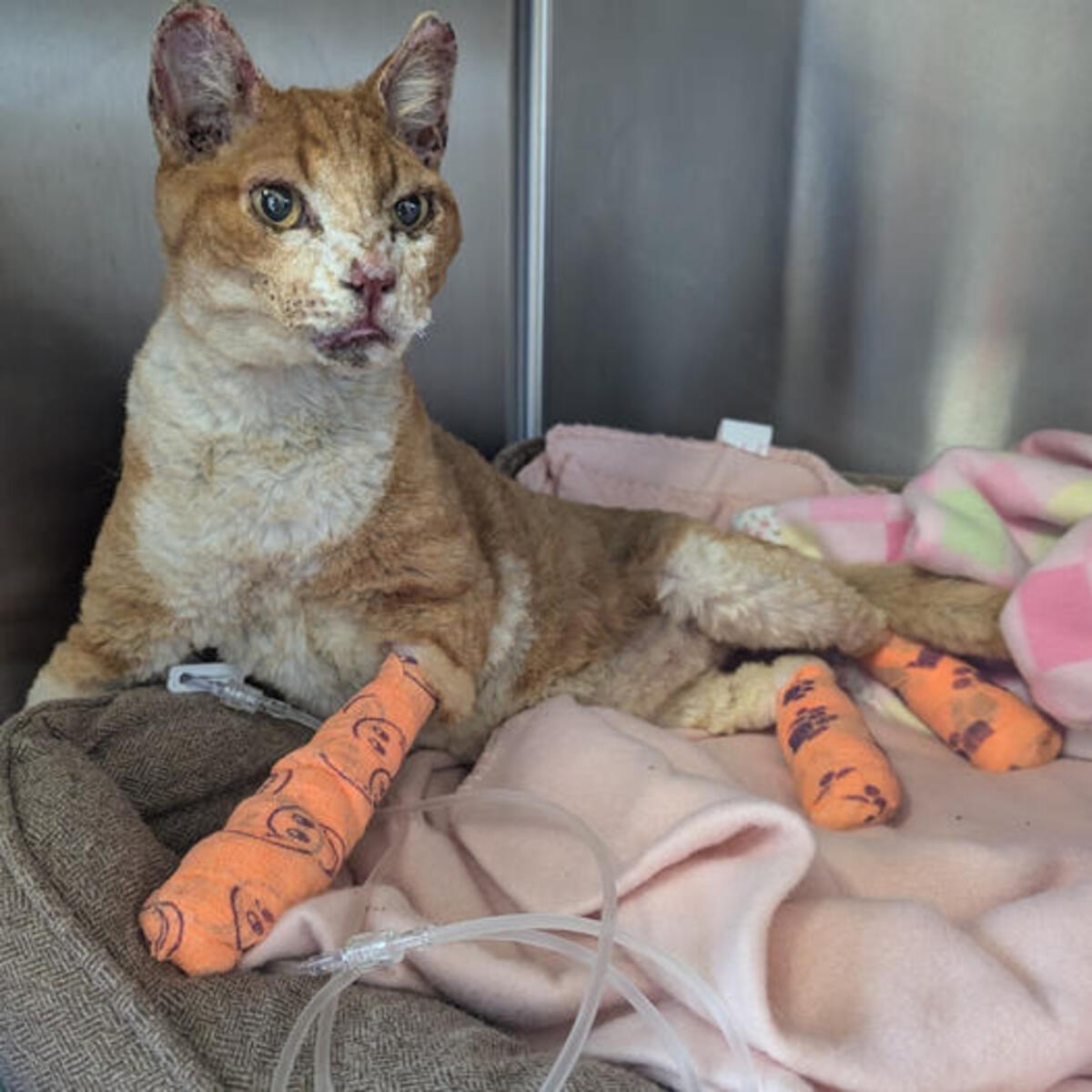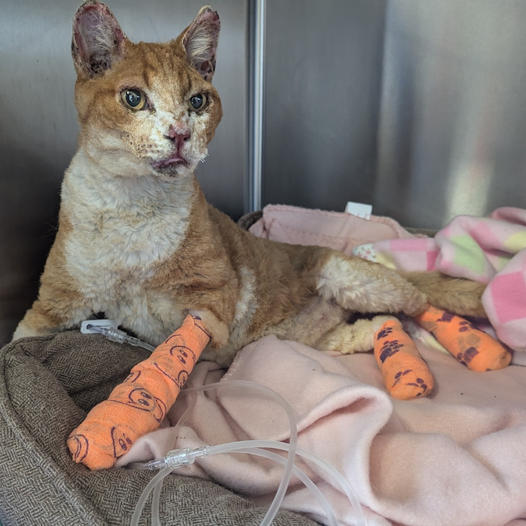RSPCA Issues Warning After Cat Burnt in Rubbish Fire
Staff Reporters
09 October 2024, 6:00 AM
 Monty in care. Photo supplied.
Monty in care. Photo supplied.Residents urged to take precautions before lighting rubbish piles to protect animals
The RSPCA South Australia is urging property owners to take extra precautions to ensure the safety of animals before igniting large rubbish piles. This comes after a male cat, estimated to be around four years old, suffered severe burns while hiding in a pile of rubbish that was set on fire in Sellicks Hill on Monday, September 16.
The cat, believed to have been sleeping in the pile, fled to a neighbouring property after the fire started. A local resident, noticing the cat was injured, quickly captured him and rushed him to Southcoast Animal Hospital in Port Noarlunga for emergency treatment.
The cat received immediate pain relief and sedation before his burnt paws were cleaned and bandaged. He was later transferred to the care of the RSPCA South Australia's veterinary team. According to Senior RSPCA SA Vet Dr Fauve Buckley, the cat sustained deep burns to all four of his paw pads, and his recovery will take several more weeks.
"One of the main concerns with burns is the risk of infection," Dr Buckley explained. "The cat has been undergoing regular wound care, including the removal of burnt skin, soaking in saline solution, and rebandaging. Pain management and regular blood tests to monitor kidney function and infection risk have also been crucial parts of his treatment."
Despite his ordeal, the cat, who has been named Monty, is said to have a friendly and outgoing personality, although no one has yet come forward to claim him. Monty was not microchipped, but he is now under the care of a foster family and is expected to be available for adoption by the end of the month.
In response to the incident, RSPCA SA Rescue Team Leader Nalika van Loenen has reminded property owners of the dangers animals face when rubbish piles are set alight. "Animals often seek out these piles as places to hide or sleep, especially during colder weather," van Loenen says. "This can include not only domestic animals but also wildlife such as lizards, possums, echidnas, and snakes."
To reduce the risk to animals, van Loenen recommends property owners feed rubbish into a controlled burn site next to the pile, allowing any hidden animals time to escape.
The RSPCA advises checking with local councils regarding fire restrictions and making plenty of noise around rubbish piles before igniting them, giving animals a chance to move to safety.
Monty is expected to make a full recovery, and the RSPCA hopes his story will serve as a reminder of the importance of being cautious and mindful of animals when lighting fires.
RSPCA SA has today launched an emergency fundraising appeal to help cover the cost of Monty’s veterinary treatment and ongoing care.
